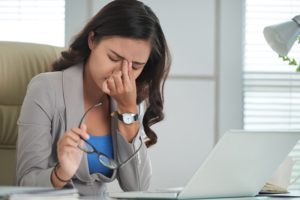Endometriosis: What Your Colleagues Should Know
Understanding the condition can be challenging for colleagues who do not have endometriosis. It is relatively unknown, and many have not even heard of it, which can sometimes result in workplace conflicts.
1. What is Endometriosis?
Approximately 10 to 15% of women of childbearing age, which translates to around 2 million women in Germany alone, are estimated to live with endometriosis. This condition involves the growth of tissue resembling the uterine lining outside the uterus, leading to discomfort. These tissue cells mimic the behavior of the endometrium inside the uterus, meaning they grow and bleed during the menstrual cycle. Consequently, inflammation, cysts, and adhesions can develop in the affected areas, often causing significant pain. Endometriosis lesions may appear on the peritoneum, ovaries, pelvic walls, or bladder, resulting in a wide range of symptoms that can vary significantly from woman to woman. Additionally, endometriosis can also impact fertility.
2. Is Endometriosis Pain Related to Normal Period Pain?
During a typical monthly menstrual period, the uterus undergoes contractions, which can be uncomfortable and feel somewhat like cramps, which is considered normal. Despite these cramps, women can usually carry on with their daily activities like shopping, working, or attending social events. However, suppose women find themselves in the emergency room due to severe period pain, experiencing fainting spells, being confined to bed, or curling up in pain on the floor. In that case, there is usually an underlying issue, and quite often, it turns out to be endometriosis.
3. Is Endometriosis a Psychological Condition?
Many people mistakenly believe that endometriosis is a psychological or psychosomatic condition. However, this is incorrect. You can find the medical basics in Section 1. Due to the presence of endometriosis lesions, repeated surgeries, adhesions, nerve involvement, and the prolonged course of the condition, many women develop chronic pain. The human brain quickly adapts and can learn to produce this pain independently of the initial pain stimulus. This process has been extensively researched and explained, and psychological care can benefit women experiencing it. Nonetheless, it is essential to clarify that endometriosis is not a mental illness. Unfortunately, the extended period of feeling unwell, along with the associated health and social limitations and the limited therapy prospects, can contribute to the development of psychological conditions such as depression or anxiety.
4. Does Endometriosis Also Affect the Job?
Endometriosis profoundly influences the lives of those affected, impacting them on multiple levels. Women experiencing severe period pain often find it challenging to engage in daily life and may need to make significant adjustments due to this pain. It is crucial to note that many individuals also experience pain outside their menstrual periods, with some facing daily discomfort. In addition, symptoms such as severe fatigue, digestive issues, and urinary discomfort can further complicate their daily routines. Increased absenteeism from work due to pain, surgeries, or rehabilitation stays is common among individuals with endometriosis. Many women strive to make it work despite their ailments and hope for the ability to work every day in good health; for some, simple actions like having a healthy lunch or taking breaks become imperative to cope with the workday’s demands. Imagine if you were dealing with a chronic condition – what kind of support would you desire from your colleagues? The most valuable support is understanding and genuine sympathy.
Explore questions and answers for relatives and friends, as well as essential information that EVERYONE should know about endometriosis, here.
- Current Research on Endometriosis: An Interview with Louis Taffs - 28. June 2024
- Current Research on Endometriosis: An Interview with Dr. Tatjana Gibbons - 13. February 2024
- Current Research on Endometriosis: An Interview with Luana De Giorgio - 12. February 2024

